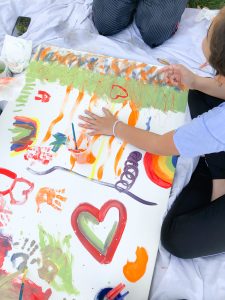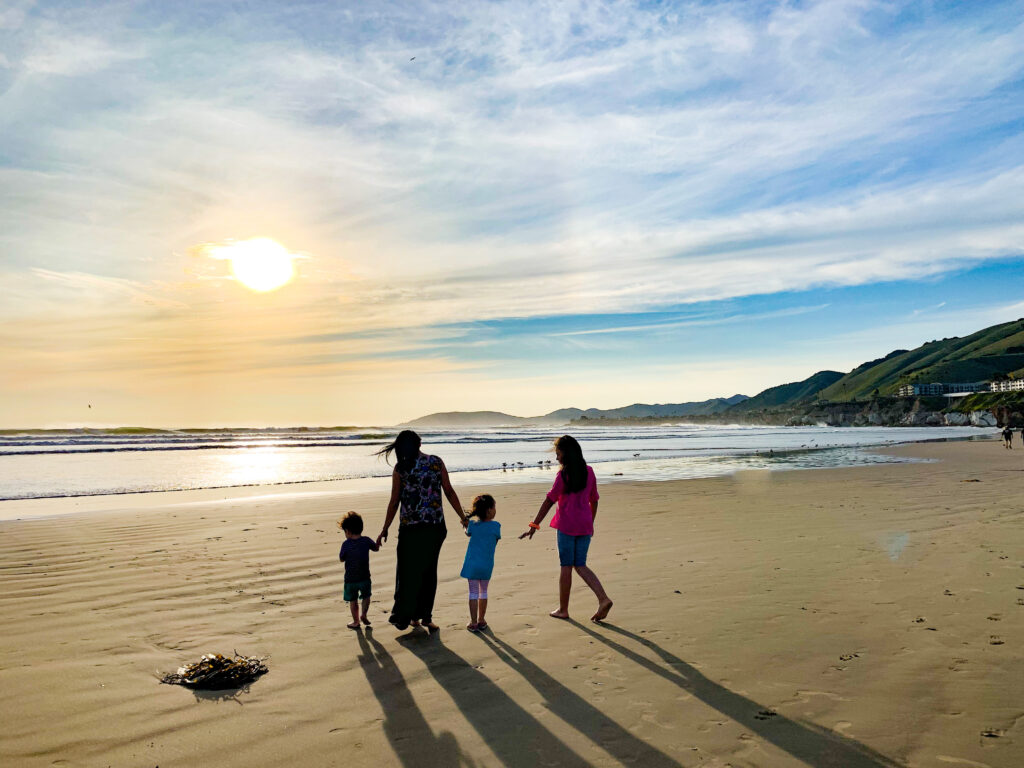
As parents, our primary instinct is to protect our children, to provide them with a safe and nurturing environment in which to grow. With recent events and the images coming through, these feelings have heightened. I am choosing not to discuss current events and the atrocities that have ensued with my littles. By definition, a terrorist seeks to instill terror. So many innocent lives have already been taken, I cannot allow these horrific acts to bring fear and terror into our children’s hearts and rob them of their childhoods too. In knowing my kids sensitivity and hearts I choose not to bring this news to them. Yet, in today’s interconnected world, tragic news events and the harsh realities of war can be difficult to shield them from. When facing such daunting subjects, it is vital to approach them in a way that not only keeps our children safe physically but also safeguards their tender hearts and minds. Here, I have put together 5 strategies on how to talk to kids about war and tragic news events while emphasizing their emotional well-being in hopes that it helps navigating these difficult times of sadness and uncertainty.
1. Age-Appropriate Communication:
Child development and psychology experts emphasize the importance of age-appropriate communication. The key is to tailor your discussions to your child’s age and understanding. For younger children, if they have questions a simple explanation that focuses on safety and reassurance is enough. Older children may benefit from more detailed, factual discussions. The conversations I have with my teen are very different than with my younger kids. I never want to instill unnecessary fear in them so I focus on facts and answer their questions while always assuring their safety. Encourage open dialogue by letting them know that it’s okay to ask questions and share their concerns.
2. Filter News Exposure:
In today’s digital age, children are exposed to news more than ever. It is crucial to filter and limit their exposure to distressing news. Dr. Pamela Rutledge, a media psychologist, advises parents to be vigilant about what children watch. I generally do not turn on the news while my kids are awake or at least in the same room. Small children can find even local news events frightening and might cause them to question their own safety, avoid it if you can.
3. Focus on Feelings
Child psychologist Dr. Jenn Berman suggests that you focus on your child’s feelings, not just the facts. Encourage them to express how the news makes them feel, whether it’s sadness, fear, or confusion. Validating their emotions helps them process the information in a healthy way.
4. Emphasize Acts of Kindness:
Child development experts like Fred Rogers have long advocated for emphasizing acts of kindness and helpers in times of tragedy. Share stories of people coming together to help and reassure your child that there is good in the world. You may feel despair too but our kids are looking to us for safety and looking at the helpers and focusing on those glimmers can help get you and your child through.
5. Lead by Example:
Children often learn by observing their parents. Show them how to cope with distressing news by demonstrating healthy ways of processing and managing your own emotions. Offer your child creative outlets for expressing their feelings, such as art, writing, or even simply talking. Creative expression can be therapeutic and provide a sense of control in uncertain times. Make sure you participate too!

Here is an activity to try: Experiment with some emotion led free painting… provide your child an array of colors to paint with. A water color set is easiest. Ask questions like what color does your heart feel when its sad? what color is the color of happy? what color is the color of safety? Let the child and paint with those colors and encourage them to blend those colors. Discuss their emotions and how it changes their art.
Finally and most importantly, seek professional help if needed. If your child is showing signs of severe distress, don’t hesitate to seek professional help. Child psychologists and counselors are trained to support children in processing trauma and anxiety. If you feel like you need someone to talk to, get professional help or reach out to a friend or another adult. Try not to unload your emotion on your child. They love you and might feel helpless to help you cope. SAMHSA is a national helpline, its free and confidential offering treatment referral and information services for individuals and families facing mental and or substance abuse disorders. Available in Spanish and English. Call 1800-662-4357

In times of tragic news events and war, our children look to us for guidance and reassurance. By creating an open, empathetic, and safe space for them to express their feelings, we can help them navigate these complex subjects while preserving their emotional well-being. As the renowned child psychologist Dr. Benjamin Spock once said, “You know more than you think you do.” With love, patience, and sensitivity, we can guide our children through even the darkest of days, helping them grow into compassionate, resilient individuals while safeguarding their innocence.




DON'T MISS A BEAT!
Subscribe today to join the L.A. Mama community and get exclusive content available only to our community members directly in your inbox!
You have Successfully Subscribed!